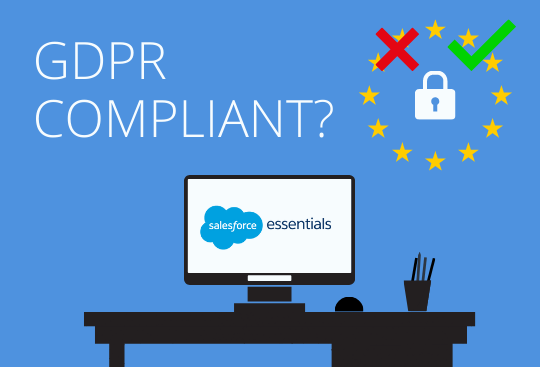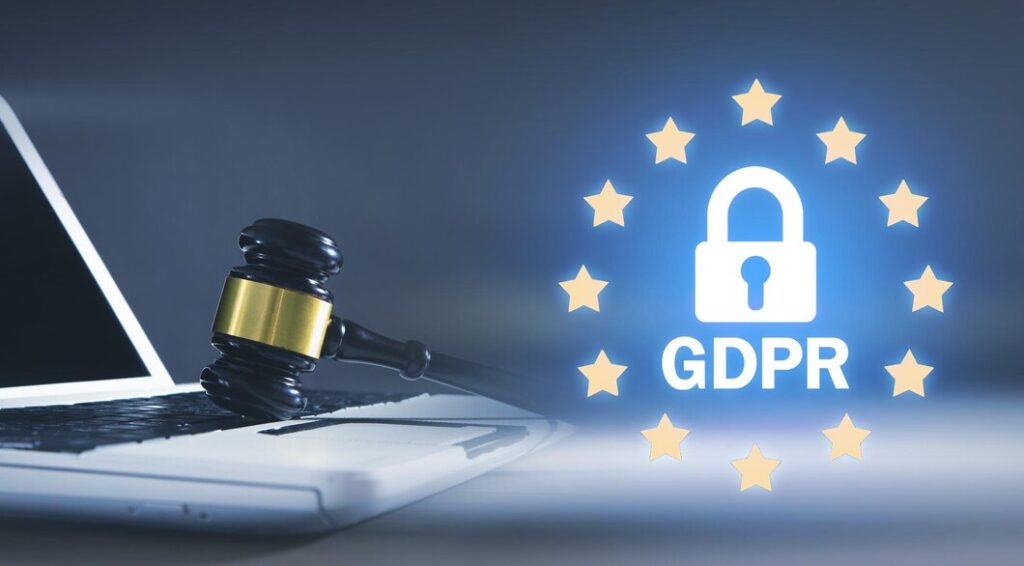Salesforce And GDPR Compliance: What You Need To Know
by Abdul Aziz Mondal Business Intelligence Published on: 28 September 2023 Last Updated on: 26 September 2024

In today’s digital age, data privacy and protection have become paramount concerns for businesses worldwide. The General Data Protection Regulation (GDPR), which came into effect in 2018, has had a profound impact on how organizations handle personal data.
For Salesforce users, GDPR compliance is not just a legal requirement; it’s a crucial step in building trust with customers. In this article, we will delve into the world of Salesforce and GDPR compliance, exploring what it means for your business and how you can ensure that your Salesforce implementation aligns with the GDPR requirements.
Understanding GDPR

GDPR is a comprehensive data privacy and protection regulation that applies to organizations that process the personal data of individuals residing in the European Union (EU). It outlines stringent rules for collecting, processing, storing, and protecting personal data.
These rules affect businesses of all sizes, whether based in the EU or not, if they handle data from EU residents. This particular regulation acts as a framework consisting of laws from all continents. It is quite difficult to replace them under the protection directive.
It was in 2018 that GDPR was brought into force. All European countries had the ability to construct their small changes to suit their personal needs. Let’s move on to the next section of the article, which describes the salesforce’s role in this compliance.
Salesforce’s Role In GDPR Compliance
Salesforce, as a powerful customer relationship management (CRM) platform, handles significant volumes of personal data. This means that Salesforce users must understand how the platform contributes to GDPR compliance. Salesforce provides tools and features to assist in compliance efforts, but the responsibility for GDPR compliance ultimately lies with the user.
Here Are Some Key Aspects To Consider:
Usually, GDPR compliance looks a bit different based on the size of your organization. But there are other considerations, too. If you want to know more about what affects GDPR compliance, check out the list below:
Data Mapping:
One of the fundamental steps in GDPR compliance is knowing where personal data is stored and how it’s processed. Salesforce’s Data Map feature allows users to map out data flows, helping in understanding data usage.
Consent Management:
GDPR requires organizations to obtain explicit consent for data processing. Salesforce provides features for managing consent records, making it easier to track and demonstrate compliance with consent requirements.
Data Deletion:
GDPR’s “right to be forgotten” means that individuals can request the erasure of their personal data. Salesforce offers tools for data deletion, which can help you fulfill these requests promptly.
Data Encryption:
Salesforce offers robust data encryption capabilities, ensuring that personal data is adequately protected during storage and transmission.
Data Security:
Salesforce has implemented stringent security measures, including role-based access controls, to safeguard data from unauthorized access.
Your Role In GDPR Compliance

While Salesforce provides essential tools for GDPR compliance, the responsibility to ensure observation lies with the user. Here are some key actions your organization should take:
Data Audit:
Regularly audit the personal data you collect, process, and store in Salesforce. Auditing your data regularly reduces dependency on future processes, and you can quickly come up with a befitting solution.
Usually, the GDPR points out a few principles that make it easier to audit data. Lawfulness, purpose limitation, accuracy, and storage limitation are some ways in which you can precisely audit data.
Data Protection Impact Assessment (DPIA):
Perform a DPIA to assess how specific data processing activities may impact the rights and freedoms of data subjects. Secondly, the GDPR asks organizations to maintain records of all the activities processed.
With the help of DPIA, one gets the freedom to define their entire operational process. Additionally, they can generate a central inventory related to the industry’s data flows.
Data Minimization:
Only collect and store data that is strictly necessary for your business purposes. Avoid excessive data collection. The principle of data minimization is not new, although it is rarely implemented.
A number of details in the GDPR make a more involved procedure in comparison to a standard questionnaire.
Privacy by Design:
Integrate data protection measures into the design of your Salesforce implementation from the outset. What’s better than having a customized design as per your needs? Privacy by design, very recently, has become crucial.
This particular rule states that every organization should consider privacy concerns when data processing begins. Instead of applying all the features retroactively, one can simply opt for this.
Data Protection Officer (DPO):
Appoint a DPO or a data protection team responsible for ensuring GDPR compliance. Moreover, the GPDR indicates that DPOs should be deployed wherever data processing is possible.
Although it does not have anything to do with high risk, it might consist of extensive and systematic profiling. Additionally, it has a special category for criminal offense data.
Transferring Data:
The next rule encompassing data transfers mainly depends on the place you are moving your data from. Organizations transferring personal data do not generally need any additional steps to safeguard their personal data.
But if you are transferring data to some third country, you might want to utilize Article 46 safeguards. In maximum cases, it simply means using standard contractual clauses of SCC.
Conclusion
Salesforce is a powerful tool for managing customer data, but it’s essential to use it in a manner that respects the privacy and data protection rights of individuals. GDPR compliance is not just a legal obligation; it’s a way to build trust with your customers and partners.
By understanding the GDPR requirements and Salesforce’s role in compliance, you can navigate the complex landscape of data privacy with confidence. Moreover, you can also take proactive steps to ensure your Salesforce implementation aligns with these requirements.
Remember, GDPR is not just a legal framework; it’s a statement of your commitment to data protection and privacy. If you need to make your Salesforce GDPR-friendly, it is recommended to use the services of top Salesforce consulting firms.
Read Also:







































































































